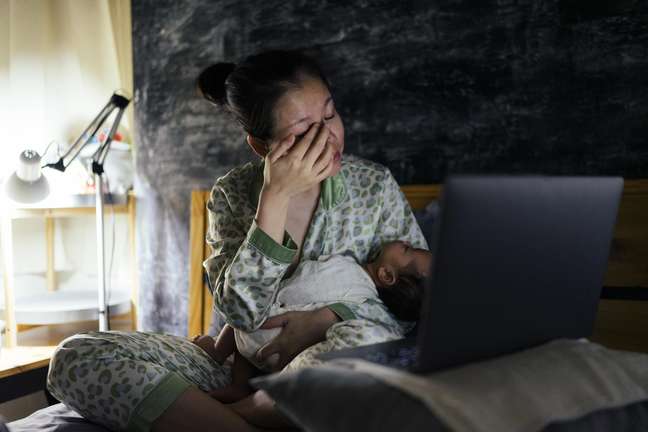Maranhão researchers analyzed the occupations of more than 5,000 mothers who have discontinued or non-exclusive breastfeeding, and the result is revealing.
Stress has already been shown to harm breastfeeding, even more when associated with factors such as fatigue and anxiety. What if we were in any doubt that the Desktop is a complete dish to potentiate these conditions in the mother, a study conducted by researchers from the Federal University of Maranhão (UFMA) was able to confirm this fact.

Published in the scientific journal Cadernos de Saúde Pública earlier this month, the survey interviewed over 5,000 puerperal women who lived in São Luís, Maranhão, in 2010. The result of the work found that mothers with occupations classified as “work semi-specialized manual “- that is, those who are manicures, shop assistants, seamstresses, fairs, among others -, I am she is more likely to stop exclusive breastfeeding. Between them, 58.2% interrupted until the baby is reached 4 months And 34.4% of respondents up to 6 months.
Also, women with a workday of 8 hours or more who exercised theirs more than 4 days a week and they had office occupations also breastfed their children for less time, compared to mothers without paid work.
The curious thing is that there was also the interruption of exclusive breastfeeding for up to 4 or 6 months more prevalent among mothers who worked standing most of the time and those who lifted heavy objects during the service.
On the other hand, 64% of women who did not have a paid job managed to breastfeed their baby up to four months of age and 46% up to six months.

For the researchers, the results confirmed that Brazilian women who have semi-skilled manual occupations, such as manicures and seamstresses, generally perform poorly paid, irregular and pressured jobs. “In this context, maternity protection is not guaranteed for female workers, who can generate stress or decrease the supply of breast milk and the interruption of exclusive breastfeeding up to six months of age,” reveals the publication. In the case of women with office occupations and workloads exceeding 8 hours of work, research indicates that they have stopped breastfeeding because their activities are carried out in small companies, sometimes with informal contracts, without labor rights or adequate breastfeeding support in the workplace.
“These findings reinforce the difficulties for women to perform the functions of worker and mother at the same time. It is possible that the characteristics of paid maternal work negatively interfered with exclusive breastfeeding up to the fourth month of the baby’s life for 120 days of maternity, especially for women with worse socioeconomic conditions, “concludes the research.
Source: Terra
Benjamin Smith is a fashion journalist and author at Gossipify, known for his coverage of the latest fashion trends and industry insights. He writes about clothing, shoes, accessories, and runway shows, providing in-depth analysis and unique perspectives. He’s respected for his ability to spot emerging designers and trends, and for providing practical fashion advice to readers.







